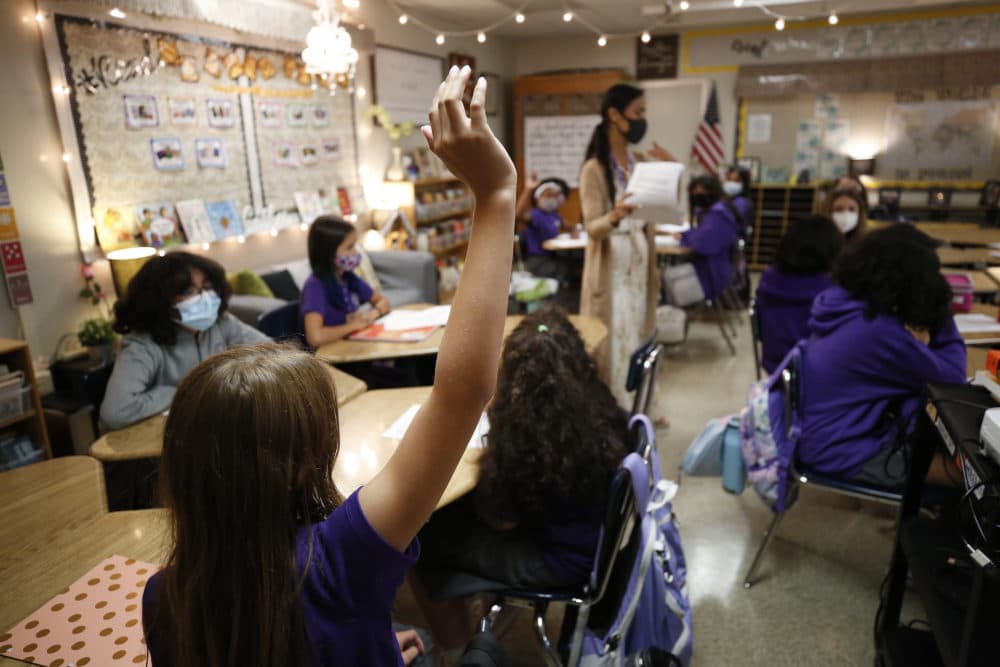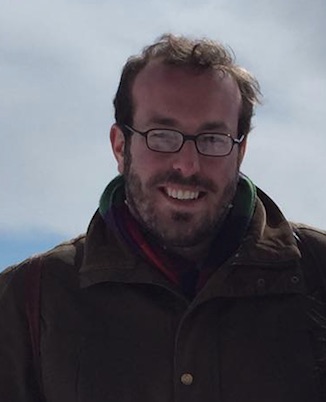Advertisement
Commentary
How My High School History Classes Failed Me

Last month, James W. Loewen died. To the world, he is known as the author of such critically acclaimed books as "Lies My Teacher Told Me: Everything Your American History Textbook Got Wrong" and "Lies Across America: What Our Historic Sites Got Wrong."
To me, James was a generous mentor whose influence far exceeds the time I spent reading his books. And, in an age when history education is caught up in America’s culture wars, his message has never been more timely.
I first met James in 2012 at a conference in Seattle. By that time, I was a doctoral student making the transition from studying Middle East and Jewish history to more stridently committing myself to research in history education. I had decided that instead of studying the past, I wanted to examine the way the past is taught in classrooms today.
Well before sitting in on James’s lecture, I had read his books and they gave me the language to describe what I had experienced as a high school student, when I felt frustrated by all the history that was absent and erased. James gave me a template for explaining what was so troublesome about versions of that past that were more celebratory than nuanced. He helped me understand how misconceptions can be born in, rather than dispelled by, history education.
James helped me make sense of my time as a student. I was in 10th grade World History class on Sept. 11, 2001, when my teacher turned the television on and we watched Flight 175 crash into the South Tower of the World Trade Center. For the rest of my time in high school, no one taught a deep or sustained study of the Middle East-American foreign policy in the region, political Islam or curricula that could have helped me understand the events of this day or the communities around the world that would dominate the global context over the ensuing two decades.
I graduated high school with no history education to correct the Islamophobia and stereotypes about the Middle East that took root in the United States. I sensed, but couldn’t explain, how my history classes failed to meet the demands of this era because teachers and textbooks chose to avoid the topics that were relevant for life in the 21st century.
When I read James’ books, I encountered a kindred spirit who recognized that history education isn’t just a dry list of names and dates to memorize. It’s the space where national identities are formed and myths that stoke pride and patriotism become etched into peoples’ consciousness. It has often bred inaccuracies that cast some communities as civilized and others as primitive.
Advertisement
So, when I went to James’ lecture in Seattle, I was astonished by how many teachers attended. They weren’t offended by his books’ indictments of classrooms. Instead, James motivated them to interrogate their teaching. They enlivened their work by moving beyond familiar narratives of progress and heroes.
James wasn’t cynical or contrarian. He wasn’t anti-American or nihilistic. He was full of hope that the humanity of people who were written out of textbooks could be reclaimed and that students’ curiosity could emerge by contemplating complexity rather than memorizing simplicity.
I raised my hand and asked how he knew that teachers were actually lying to students when his research looked at what was written in textbooks and, clearly, lots of teachers were inspired enough to attend his lecture. What a textbook says isn’t what a teacher preaches.
I’d ask James this question again, a little over a year later when he helped me shape the ideas that would become my dissertation topic, then my first book, and the undercurrent to my entire professional life during a phone conversation.
I shared with James my interest in the Middle East and my concerns that the region and its people are underrepresented and misrepresented in classrooms. By the end of the call, James convinced me to push ahead with my research, focusing on teacher talk instead of textbooks. He told me that his work never went so far as to look at the issues with world history. He quipped that I could write "Lies My World History Teacher Told Me." I still hold on to this idea.
James wasn’t cynical or contrarian. He wasn’t anti-American or nihilistic. He was full of hope that the humanity of people who were written out of textbooks could be reclaimed...
I exchanged emails with James, sharing news of my dissertation progress and informing him of my book’s release. His willingness to answer a call and to talk me through my confusion was an immense act of kindness. He walked me through vagueness and self-doubt to a sense of purpose.
The loss of James Loewen comes at a time when history education has become part of this most recent wave of American culture wars. History teachers are unnerved by accusations that they are indoctrinating students. There has never been a more relevant time to hear James's voice of compassion for people who are written out of history and admonition to teach beyond myths and misconceptions.
As we mark the 20th anniversary of 9/11 and as I listen to teachers who are feeling like their vocation is yet another battlefield in a culture war, I return to James’ writings.
I continue to care about what is taught and what is not. I focus on the humanity that deserves recognition and work to make this the standard in education. And, even though James has passed, I’m thankful that this author of influential books took the time to speak with me and inspire the professional life I live.
